EXPLAINER
What do the ANC’s new electoral rules mean for what happens at December conference?
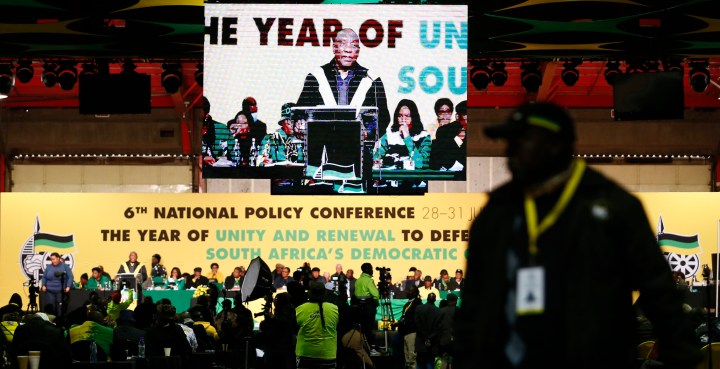
What happens at the ANC’s electoral conference in December has an impact that extends well beyond the party. With new rules being introduced to control nominees and the voting process, this year could see a significant shake-up. A few days ahead of the opening of nomination season, we unpack the changes and their meaning.
What happens in December 2022, when and where?
In December 2022, the ANC will hold its 55th National Conference. These conferences are the most important meetings of the party, and since 1997 they have been held every five years.
Policy resolutions determining ANC stances on various matters for the next few years are debated and adopted. But most critically for the rest of the country, these conferences also see the election of the party’s top leaders. This has a significant impact on South Africa as a whole, because as a result of the political majority the ANC continues to hold, the person elected as president of the party is effectively guaranteed the presidency of the country.
These conferences are colloquially referred to by means of their date or location. “Polokwane”, for instance, is shorthand for the 2007 conference that took place in the city of Polokwane. “Mangaung” was 2012’s conference; “Nasrec”, 2017’s.
Traditionally, these conferences have been moved around between different South African provinces to ensure fairness: whenever the ANC meets en masse, it represents an economic boost (and a bacchanalian blowout) for the host city. In the democratic era, the Eastern Cape, Northern Cape and Mpumalanga have yet to host the national conference, but the latter two provinces are considered non-starters for lacking the necessary infrastructure.
This year, there was talk of Durban hosting the conference, which has not sat in KwaZulu-Natal since 1991. Given the ANC’s ongoing cash crunch, however, it seems probable that the Nasrec complex in Gauteng may be the stage for the second conference in a row — as the easiest and cheapest option.
The conference has been pencilled in for December 16-20, much to the delight of journalists, political analysts and ANC staffers, all of whom feel that end-of-year holidays are highly overrated.
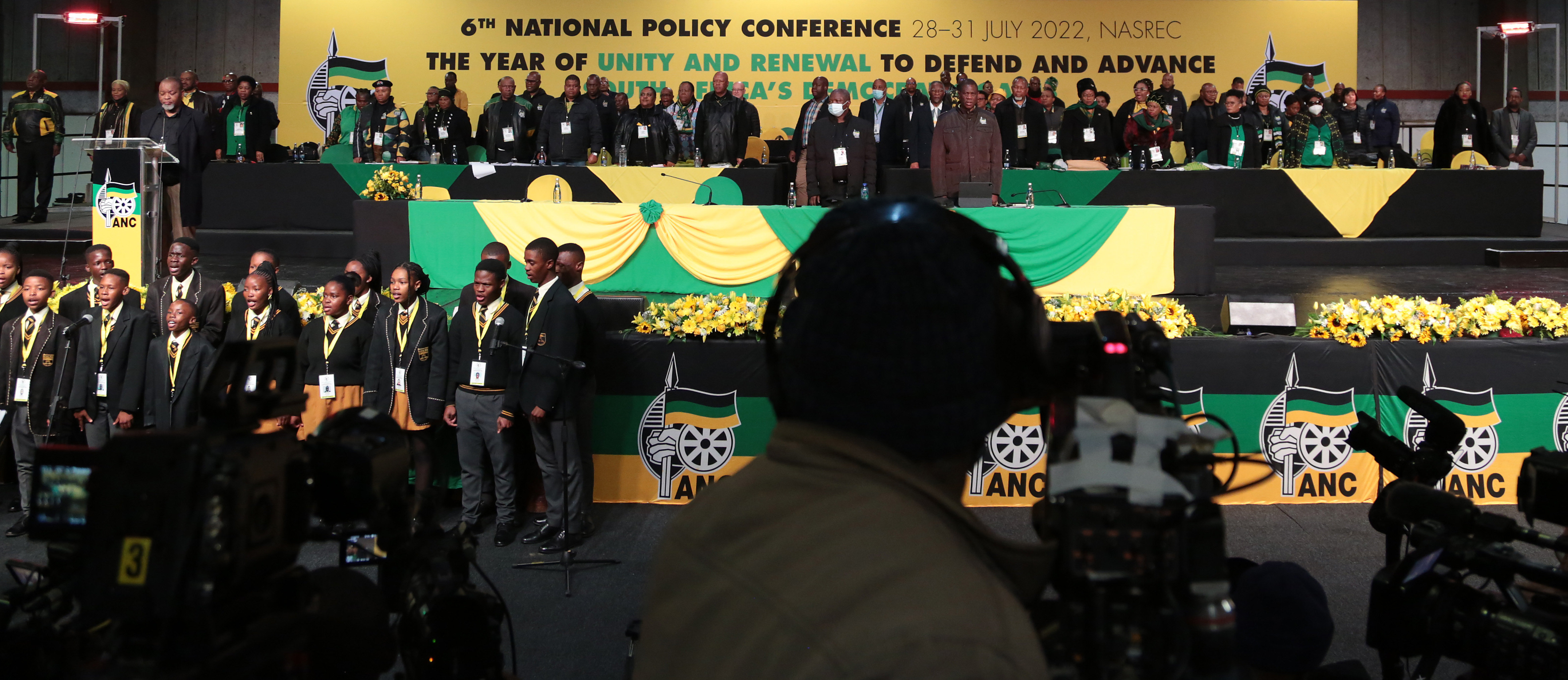
The national anthem is sung at the ANC’s 6th National Policy Conference held at Nasrec on 29 July 2022. (Photo: Felix Dlangamandla)
Who gets elected at the conference?
The 80 members of the ANC’s National Executive Committee (NEC), which is the party’s highest decision-making body, and the ANC’s six most senior national officials.
Generally known as the “Top Six”, these posts are: party president, deputy president, secretary-general, deputy secretary-general, national chair and treasurer.
Nominations open in a week’s time, on 7 September.
Thereafter, brace yourself for a sudden flurry of negative stories about the Top Six nominees circulating on social media. It’s smear season, baby!
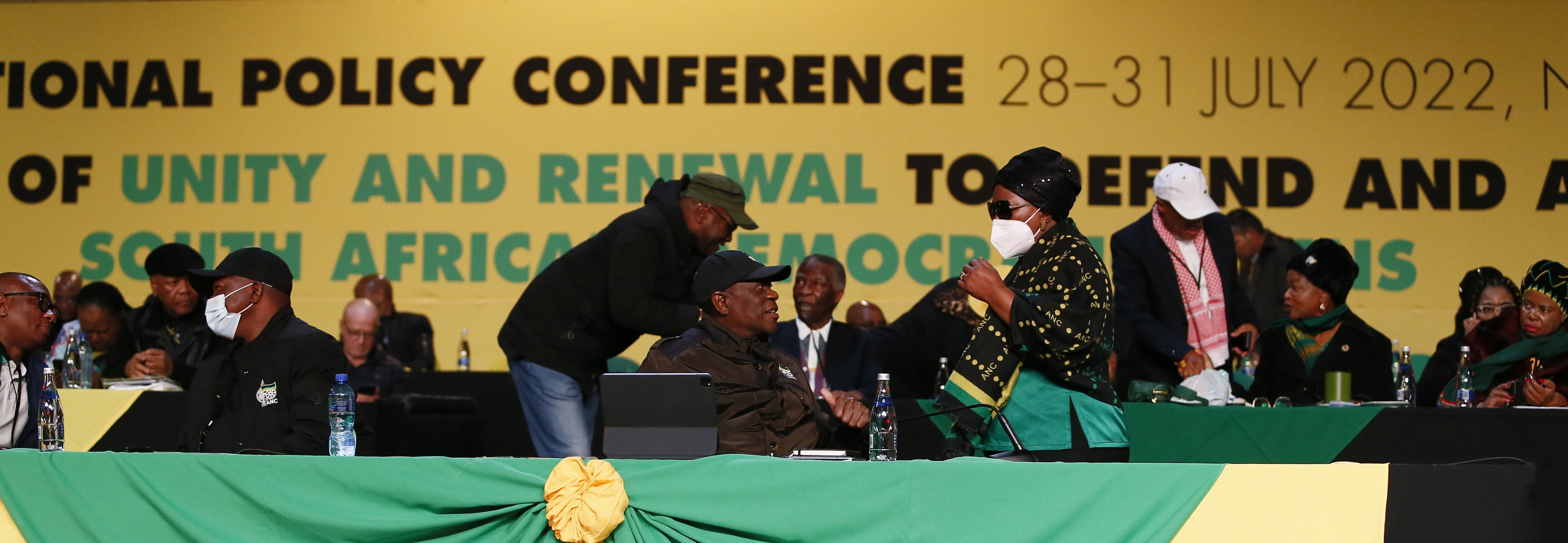
ANC executive members Paul Mashatile and Nkosazana Dlamini-Zuma on the last day of the ANC’s 6th National Policy Conference held at Nasrec on 31 July 2022. (Photo: Felix Dlangamandla / Daily Maverick)
Remind me who, currently, is in the ANC’s Top Six?
This is a surprisingly good question, with a strange answer, because half of the Top Six positions are currently occupied by one person (talk about manspreading). As things stand:
- Party president: Cyril Ramaphosa
- Deputy president: David Mabuza
- National chair: Gwede Mantashe
As recently reported by Daily Maverick, Paul Mashatile is currently occupying the treasurer position, but also serving as acting secretary-general and deputy secretary-general. The latter two posts were previously occupied by Ace Magashule and Jessie Duarte, but have been vacant since Magashule’s suspension and Duarte’s death.
If you are good at maths you will have quickly calculated that there are currently 0 women in the ANC’s Top Six: a pretty shameful state of affairs for a party which prides itself on its supposed commitment to gender parity.
This is one of the issues that the ANC’s new electoral rules, drafted by a committee led by former president Kgalema Motlanthe, are designed to try to address.
Visit Daily Maverick’s home page for more news, analysis and investigations
What are the most important new rules governing the electoral conference?
Far and away the most significant new decree is that ANC members cannot be elected to top leadership if they have either been found guilty of, or been charged with, “unethical or immoral conduct, or any serious crime, or corruption”. They also cannot be elected if they are temporarily suspended from the ANC while their case proceeds.
This, in one fell swoop, pretty much guarantees that Magashule will not be permitted to contest for top party leadership, since the corruption case for which he is currently suspended will almost certainly not be resolved by the December conference.
As Stephen Grootes recently observed in Daily Maverick, this new rule is likely to cause much wrangling within the party over the precise meaning of terms like “serious crime” and “unethical or immoral conduct”. (This is also where the smears will come into play.)
On the face of it, though, Grootes suggested it should also preclude the likes of current NEC members Tony Yengeni (previously found guilty of corruption) and Bathabile Dlamini (more recently convicted of perjury) from being re-elected to the NEC.
The second most important new rule is to do with attempts to banish the practice whereby delegates vote for “slates”: predetermined lists of ANC officials grouped together.
As noted by Motlanthe’s committee, this practice means that the “capacity and track record” of individual candidates are often overlooked simply by dint of their presence alongside other candidates on a particular slate: because voting delegates like one of the politicians on a slate, they hold their noses and vote for the others too.
The rules dictate that “no group of NEC candidates may campaign as an organised slate”, and “no one may distribute prescriptive lists of officials and NEC members that delegates should vote for as a slate”.
In reality, this is definitely still going to happen — in fact, slates are already busily being circulated on social media and WhatsApp. But a change to the order of voting may be more effective in diluting the practice.
Previously, voting delegates would elect all Top Six officials at once. In accordance with the new rules, however, they will elect the positions of president, secretary-general, national chair and treasurer in a first ballot. Voting for the second ballot, containing the positions of deputy president and deputy secretary-general, will take place only “once results are known for the first ballot”.
This means that unsuccessful candidates for the first crop of Top Six positions could still be elected via the second ballot.
Motlanthe’s new rules also specifically state that separating the two votes “will sharpen the awareness of delegates of imbalances among the top six in terms of gender, age, national groups, etc”.
Forty of the 80 NEC positions should be filled by women, and three out of the Top Six.
The third significant new rule is to do with campaign financing, which became the subject of huge controversy when President Cyril Ramaphosa’s political opponents leapt on the lack of transparency surrounding this issue to kick up mud around his CR17 presidential campaign.
The full financial record of every campaign must now be submitted to the party’s Electoral Committee, which also has the right to “inspect bank statements of candidates, campaigns and campaign workers and to interview members of campaign teams”.
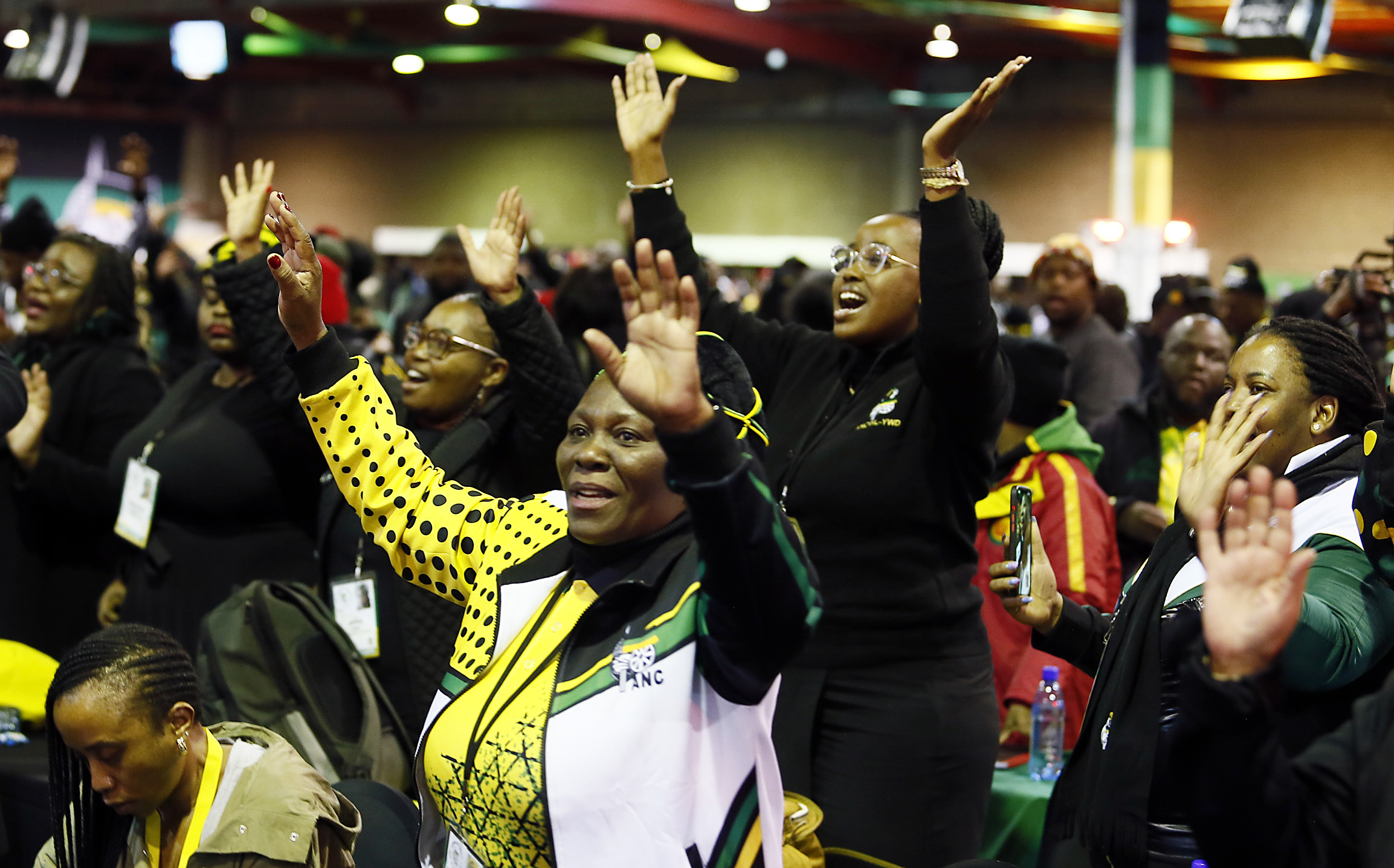
Delegates on the last day of the ANC’s 6th National Policy Conference on 31 July 2022. (Photo: Felix Dlangamandla)
So if Motlanthe’s rules are actually adhered to, what should we see?
A beautiful new system which weeds out tarnished candidates from the get-go, which supplies greater diversity among elected officials, and which ensures that voting delegates are appraising and voting for candidates based on their individual strengths rather than their membership of a particular gang.
Doesn’t that seem … almost too good to be true?
Very much so. The new rules are still likely to be picked apart in every conceivable direction, including possibly by means of court challenges, because there are lucrative political careers at stake here.
We can also expect to see the new rules bent and twisted to serve purposes far more nefarious than those envisaged by the Honourable Motlanthe and his team. ANC electoral conferences are traditionally hotbeds of various forms of corrupt activity, such as vote-buying, and as admirable as the new rules might be, it is hard to imagine them succeeding in stamping out ingrained forms of graft overnight.
Much will become clearer once campaigning season begins in earnest. Buckle up, South Africa, because the road to an ANC electoral conference is never smooth. DM








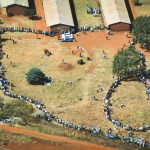











 Become an Insider
Become an Insider
The Motlanthe rules mean nothing. You must ask the disgruntled members who lodged complaints on the local government lists what has happened and you must read the report of Chauke in the Northwest. These rules are for public consumption but in practice do not work. First on the campaign money, only those who use legally sourced fund are affected by the rules but those with the proceeds of crime the rules do not affect them as they have no paper trail and use cash. Read the Zondo Commission. The ANC BGMs for nomination and election of conference delegates is where big money works usually in cash to buy food for delegates and alcohol until the quorum forms from 10am to 12 midnight. It involves rent a crowd using transport to the venue. Payment for all these is very diffuse and nobody knows except regional leaders in pockets of
national contestants. Read Sihle Zikalala’s political report on the”tools of trade”.
You have those who are contesting with an elaborate infrastructure with a lot of resources distributed through channels that cannot be traced. You see only the chief campaigner. The pronouncements made by provinces are meaningless as people have what they call their ground forces who do not care about these rules written by people with bulging stomachs when they are hungry. Then there is a matter of salaries that will loom large over the conference with staff saying that this is the worst ANC leadership they ever had.